第5章 ON SOME TECHNICAL ELEMENTS OF STYLE IN LITERATURE(
The same lines delivered with the measured utterance of verse would perhaps seem rich in variety.By the more summary enunciation proper to prose, as to a more distant vision, these niceties of difference are lost.A whole verse is uttered as one phrase; and the ear is soon wearied by a succession of groups identical in length.The prose writer, in fact, since he is allowed to be so much less harmonious, is condemned to a perpetually fresh variety of movement on a larger scale, and must never disappoint the ear by the trot of an accepted metre.And this obligation is the third orange with which he has to juggle, the third quality which the prose writer must work into his pattern of words.It may be thought perhaps that this is a quality of ease rather than a fresh difficulty; but such is the inherently rhythmical strain of the English language, that the bad writer - and must I take for example that admired friend of my boyhood, Captain Reid? - the inexperienced writer, as Dickens in his earlier attempts to be impressive, and the jaded writer, as any one may see for himself, all tend to fall at once into the production of bad blank verse.And here it may be pertinently asked, Why bad? And I suppose it might be enough to answer that no man ever made good verse by accident, and that no verse can ever sound otherwise than trivial when uttered with the delivery of prose.But we can go beyond such answers.The weak side of verse is the regularity of the beat, which in itself is decidedly less impressive than the movement of the nobler prose; and it is just into this weak side, and this alone, that our careless writer falls.Apeculiar density and mass, consequent on the nearness of the pauses, is one of the chief good qualities of verse; but this our accidental versifier, still following after the swift gait and large gestures of prose, does not so much as aspire to imitate.Lastly, since he remains unconscious that he is making verse at all, it can never occur to him to extract those effects of counterpoint and opposition which I have referred to as the final grace and justification of verse, and, I may add, of blank verse in particular.
4.CONTENTS OF THE PHRASE.- Here is a great deal of talk about rhythm - and naturally; for in our canorous language rhythm is always at the door.But it must not be forgotten that in some languages this element is almost, if not quite, extinct, and that in our own it is probably decaying.The even speech of many educated Americans sounds the note of danger.I should see it go with something as bitter as despair, but I should not be desperate.As in verse no element, not even rhythm, is necessary, so, in prose also, other sorts of beauty will arise and take the place and play the part of those that we outlive.The beauty of the expected beat in verse, the beauty in prose of its larger and more lawless melody, patent as they are to English hearing, are already silent in the ears of our next neighbours; for in France the oratorical accent and the pattern of the web have almost or altogether succeeded to their places; and the French prose writer would be astounded at the labours of his brother across the Channel, and how a good quarter of his toil, above all INVITA MINERVA, is to avoid writing verse.
So wonderfully far apart have races wandered in spirit, and so hard it is to understand the literature next door!
Yet French prose is distinctly better than English; and French verse, above all while Hugo lives, it will not do to place upon one side.What is more to our purpose, a phrase or a verse in French is easily distinguishable as comely or uncomely.There is then another element of comeliness hitherto overlooked in this analysis: the contents of the phrase.Each phrase in literature is built of sounds, as each phrase in music consists of notes.One sound suggests, echoes, demands, and harmonises with another; and the art of rightly using these concordances is the final art in literature.It used to be a piece of good advice to all young writers to avoid alliteration; and the advice was sound, in so far as it prevented daubing.None the less for that, was it abominable nonsense, and the mere raving of those blindest of the blind who will not see.The beauty of the contents of a phrase, or of a sentence, depends implicitly upon alliteration and upon assonance.The vowel demands to be repeated; the consonant demands to be repeated;and both cry aloud to be perpetually varied.You may follow the adventures of a letter through any passage that has particularly pleased you; find it, perhaps, denied a while, to tantalise the ear; find it fired again at you in a whole broadside; or find it pass into congenerous sounds, one liquid or labial melting away into another.And you will find another and much stranger circumstance.Literature is written by and for two senses: a sort of internal ear, quick to perceive 'unheard melodies'; and the eye, which directs the pen and deciphers the printed phrase.Well, even as there are rhymes for the eye, so you will find that there are assonances and alliterations; that where an author is running the open A, deceived by the eye and our strange English spelling, he will often show a tenderness for the flat A; and that where he is running a particular consonant, he will not improbably rejoice to write it down even when it is mute or bears a different value.